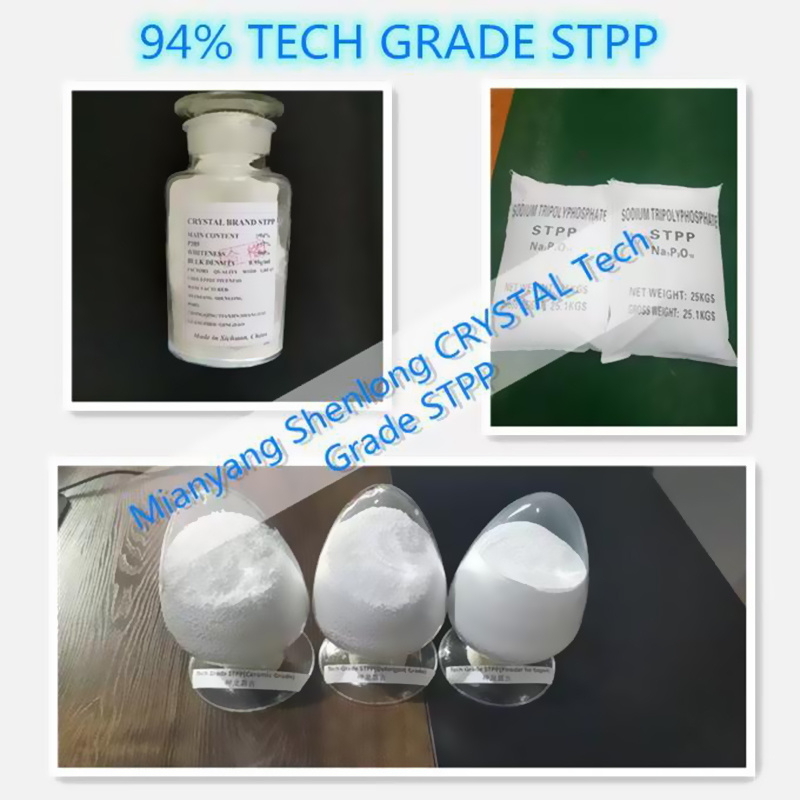Exploring the Latest Advances in Sodium Polyphosphate: Applications and Implications
2025-10-28
Sodium polyphosphate, a polymer of phosphoric acid, has garnered increasing attention for its diverse applications in various industries, particularly in the realm of biochemistry. As one of the newest advancements in this field, Sodium polyphosphate serves multiple functions, including as a sequestrant, emulsifier, and stabilizer, making it a vital component in many formulations.
One of the most

Sodium polyphosphate, a polymer of phosphoric acid, has garnered increasing attention for its diverse applications in various industries, particularly in the realm of biochemistry. As one of the newest advancements in this field, Sodium polyphosphate serves multiple functions, including as a sequestrant, emulsifier, and stabilizer, making it a vital component in many formulations.
One of the most significant characteristics of Sodium polyphosphate is its ability to form complexes with metal ions. This property is particularly valuable in agricultural applications, where it can enhance nutrient availability in fertilizer formulations. As soil health becomes increasingly important to sustainable agriculture, the role of Sodium polyphosphate in optimizing nutrient uptake cannot be overlooked. Its capacity to bind with calcium, magnesium, and other metal ions helps prevent nutrient lock-up, ensuring that plants receive the minerals they need for optimal growth.
Additionally, Sodium polyphosphate's role in food science is noteworthy. It acts as a preservative, improving the quality and shelf life of various food products. By maintaining moisture levels and preventing crystallization, it enhances the texture and flavor profile of processed foods. The newest formulations of Sodium polyphosphate are designed to meet stringent food safety regulations while providing effective performance, making it an essential ingredient in the food industry.
In the realm of water treatment, Sodium polyphosphate is utilized for its ability to inhibit scale formation and corrosion in pipes and machinery. This is particularly crucial in industrial settings, where the longevity of equipment directly impacts operational efficiency and cost-effectiveness. The latest innovations in Sodium polyphosphate formulations are aimed at improving their performance in these applications, offering enhanced stability and effectiveness.
Furthermore, Sodium polyphosphate finds its applications in detergents and cleaning products. It enhances cleaning efficiency by softening water and improving the solubility of other cleaning agents. The newest Sodium polyphosphate products are being developed with a focus on environmental sustainability, aiming to reduce the ecological footprint commonly associated with traditional cleaning agents.
In conclusion, the newest Sodium polyphosphate represents a significant advancement in biochemistry, offering versatile solutions across various industries. From agriculture to food science, water treatment, and cleaning products, this compound demonstrates its multifaceted potential. As research continues to unveil more about Sodium polyphosphate, its role in enhancing product performance and sustainability will only grow, making it a topic of interest for professionals in the field. Understanding these advancements can help industries leverage the benefits of Sodium polyphosphate, driving innovation and sustainable practices.
One of the most significant characteristics of Sodium polyphosphate is its ability to form complexes with metal ions. This property is particularly valuable in agricultural applications, where it can enhance nutrient availability in fertilizer formulations. As soil health becomes increasingly important to sustainable agriculture, the role of Sodium polyphosphate in optimizing nutrient uptake cannot be overlooked. Its capacity to bind with calcium, magnesium, and other metal ions helps prevent nutrient lock-up, ensuring that plants receive the minerals they need for optimal growth.
Additionally, Sodium polyphosphate's role in food science is noteworthy. It acts as a preservative, improving the quality and shelf life of various food products. By maintaining moisture levels and preventing crystallization, it enhances the texture and flavor profile of processed foods. The newest formulations of Sodium polyphosphate are designed to meet stringent food safety regulations while providing effective performance, making it an essential ingredient in the food industry.
In the realm of water treatment, Sodium polyphosphate is utilized for its ability to inhibit scale formation and corrosion in pipes and machinery. This is particularly crucial in industrial settings, where the longevity of equipment directly impacts operational efficiency and cost-effectiveness. The latest innovations in Sodium polyphosphate formulations are aimed at improving their performance in these applications, offering enhanced stability and effectiveness.
Furthermore, Sodium polyphosphate finds its applications in detergents and cleaning products. It enhances cleaning efficiency by softening water and improving the solubility of other cleaning agents. The newest Sodium polyphosphate products are being developed with a focus on environmental sustainability, aiming to reduce the ecological footprint commonly associated with traditional cleaning agents.
In conclusion, the newest Sodium polyphosphate represents a significant advancement in biochemistry, offering versatile solutions across various industries. From agriculture to food science, water treatment, and cleaning products, this compound demonstrates its multifaceted potential. As research continues to unveil more about Sodium polyphosphate, its role in enhancing product performance and sustainability will only grow, making it a topic of interest for professionals in the field. Understanding these advancements can help industries leverage the benefits of Sodium polyphosphate, driving innovation and sustainable practices.
PREVIOUS:


 TESFA STPP
TESFA STPP